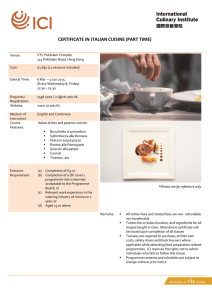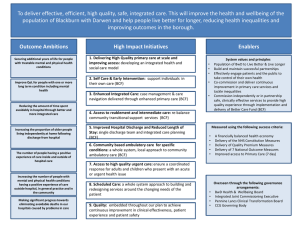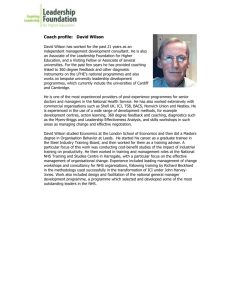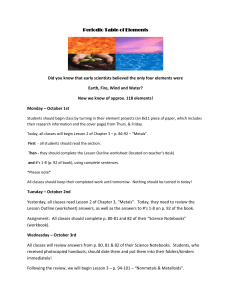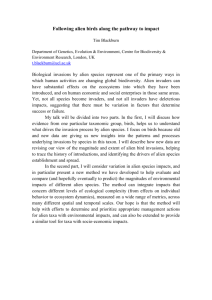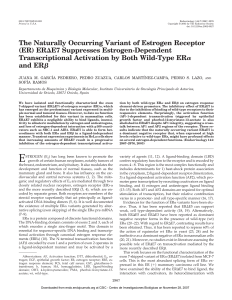Although the word `alien` is (1) ______ as `foreigner, outsider, not
advertisement
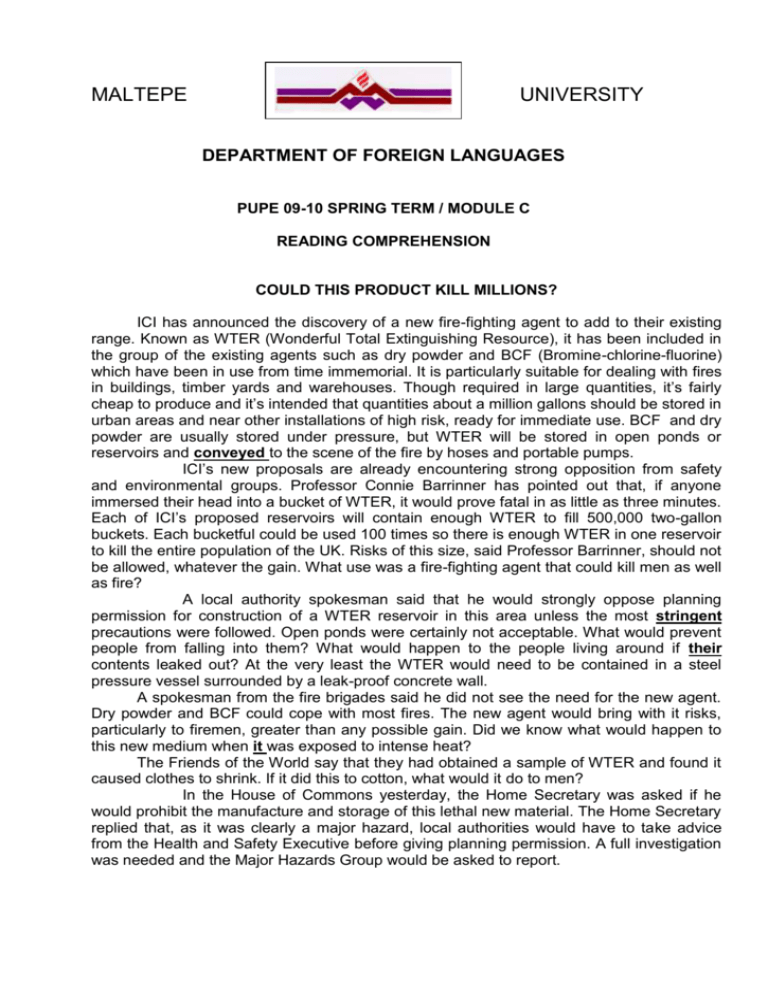
MALTEPE UNIVERSITY DEPARTMENT OF FOREIGN LANGUAGES PUPE 09-10 SPRING TERM / MODULE C READING COMPREHENSION COULD THIS PRODUCT KILL MILLIONS? ICI has announced the discovery of a new fire-fighting agent to add to their existing range. Known as WTER (Wonderful Total Extinguishing Resource), it has been included in the group of the existing agents such as dry powder and BCF (Bromine-chlorine-fluorine) which have been in use from time immemorial. It is particularly suitable for dealing with fires in buildings, timber yards and warehouses. Though required in large quantities, it’s fairly cheap to produce and it’s intended that quantities about a million gallons should be stored in urban areas and near other installations of high risk, ready for immediate use. BCF and dry powder are usually stored under pressure, but WTER will be stored in open ponds or reservoirs and conveyed to the scene of the fire by hoses and portable pumps. ICI’s new proposals are already encountering strong opposition from safety and environmental groups. Professor Connie Barrinner has pointed out that, if anyone immersed their head into a bucket of WTER, it would prove fatal in as little as three minutes. Each of ICI’s proposed reservoirs will contain enough WTER to fill 500,000 two-gallon buckets. Each bucketful could be used 100 times so there is enough WTER in one reservoir to kill the entire population of the UK. Risks of this size, said Professor Barrinner, should not be allowed, whatever the gain. What use was a fire-fighting agent that could kill men as well as fire? A local authority spokesman said that he would strongly oppose planning permission for construction of a WTER reservoir in this area unless the most stringent precautions were followed. Open ponds were certainly not acceptable. What would prevent people from falling into them? What would happen to the people living around if their contents leaked out? At the very least the WTER would need to be contained in a steel pressure vessel surrounded by a leak-proof concrete wall. A spokesman from the fire brigades said he did not see the need for the new agent. Dry powder and BCF could cope with most fires. The new agent would bring with it risks, particularly to firemen, greater than any possible gain. Did we know what would happen to this new medium when it was exposed to intense heat? The Friends of the World say that they had obtained a sample of WTER and found it caused clothes to shrink. If it did this to cotton, what would it do to men? In the House of Commons yesterday, the Home Secretary was asked if he would prohibit the manufacture and storage of this lethal new material. The Home Secretary replied that, as it was clearly a major hazard, local authorities would have to take advice from the Health and Safety Executive before giving planning permission. A full investigation was needed and the Major Hazards Group would be asked to report. PART A: Choose the best alternative (A, B, C or D). 1. a. b. c. d. This article is probably a reaction to ____________________ ICI’s announcement of its new product developments. the introduction of a new chemical for fire-fighting. recent outcries against new industrial products. recent reports about fire at a chemical plant. 2. a. b. c. d. The new product is intended to _______________________ replace the existing range of agents. improve the agents presently in use. increase the number of agents presently in use. be used when other agents are unavailable. 3. a. b. c. d. Professor Barrinner’s argument shows how _______________ dangerous this new agent can be. pressure groups try to mislead people. academics often distort the facts. logic can be carried to absurdity. 4. a. b. c. d. The local authority spokesman called for _________________ through investigations. vigorous protest. complex regulations. strict safety measures. 5. a. b. c. d. The Home Secretary’s response was to __________________ express concern about the new product. suspend production of the new product. give the development his general approval. deny the need for any action to be taken. PART B: Choose the best alternative (A, B, C or D) . ‘convey’ in line 9 means _____ . receive contain produce carry 7. ‘stringent’ in line 19 means ____ . a. dangerous b. strict c. insecure d. flexible 8. What does ‘their’ in line 21 refer to ? a. people’s b. buckets’ c. open ponds’ d. steel pressure vessels’ 9. What does ‘it’ in line 27 refer to ? a. BCF b. UK c. WTER d. ICI 6. a. b. c. d. WORD BUILDING Read the text below. Use the word given in capitals at the end of each line to form a word that fits in the space in the same line. There is one example at the beginning. No points will be given for the misspelled words. Although the word ‘alien’ is (1) _________ as ‘foreigner, outsider, not native to Earth’, humans have long been fascinated by the (2) _________ of life in outer space. Since many space creatures have already (3) _________ on our TV and cinema screens, we all have a(n) (4) _________ of these strange creatures. DEFINITION Many serious space (5) _________ are now beginning to turn their (6) _________ to the question of what alien life might actually look life. One early result is Arnold the Alien, designed by biologist Dougal Dixon. This strange being, unlike humans, has its eyes, ears and limbs in groups of three. However, despite its odd (7) _________ its behavior (8) _________ our own. RESEARCH ATTEND Although there have been a number of (9) _________ about the scientific research on alien bodies, the US government has always (10) _________ an official declaration about such findings. IMPLY 1 2 3 4 5 6 7 8 9 10 EXIST APPEARANCE RECOGNISE APPEAR RESEMBLENCE AVOIDANCE
